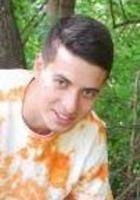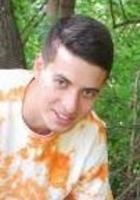Connect with hundreds of tutors like Joe
Who needs tutoring?
FEATURED BY
TUTORS FROM
- YaleUniversity
- PrincetonUniversity
- StanfordUniversity
- CornellUniversity

Joe
About Me
I just recently graduated from Villanova University with a BS in Chemical Engineering, and dual minors in Biology and Bioengineering. At Villanova, I was the president of the Club Running team, Commissioner of Intramural Sports, and heavily involved in service. Outside of the classroom, I've held internships and co-ops with ChemSolv, Inc., GlaxoSmithKline, and Johnson & Johnson, as well as presented research at the American Chemical Society National Expo. Beginning in the fall of 2015 I will pursue a PhD in Chemical Engineering at MIT.My hobbies include every and all sports, both playing and watching, playing keyboard and singing vocals in a local rock band, cooking, and outdoors activities. My go-to fun-fact is that I am the youngest of 9 children!
Education & Certifications
Test Scores
Q&A with Joe
Tutoring Subjects
Connect with a tutor like Joe
Connect with a tutor like Joe
Tutors with Similar Experience



